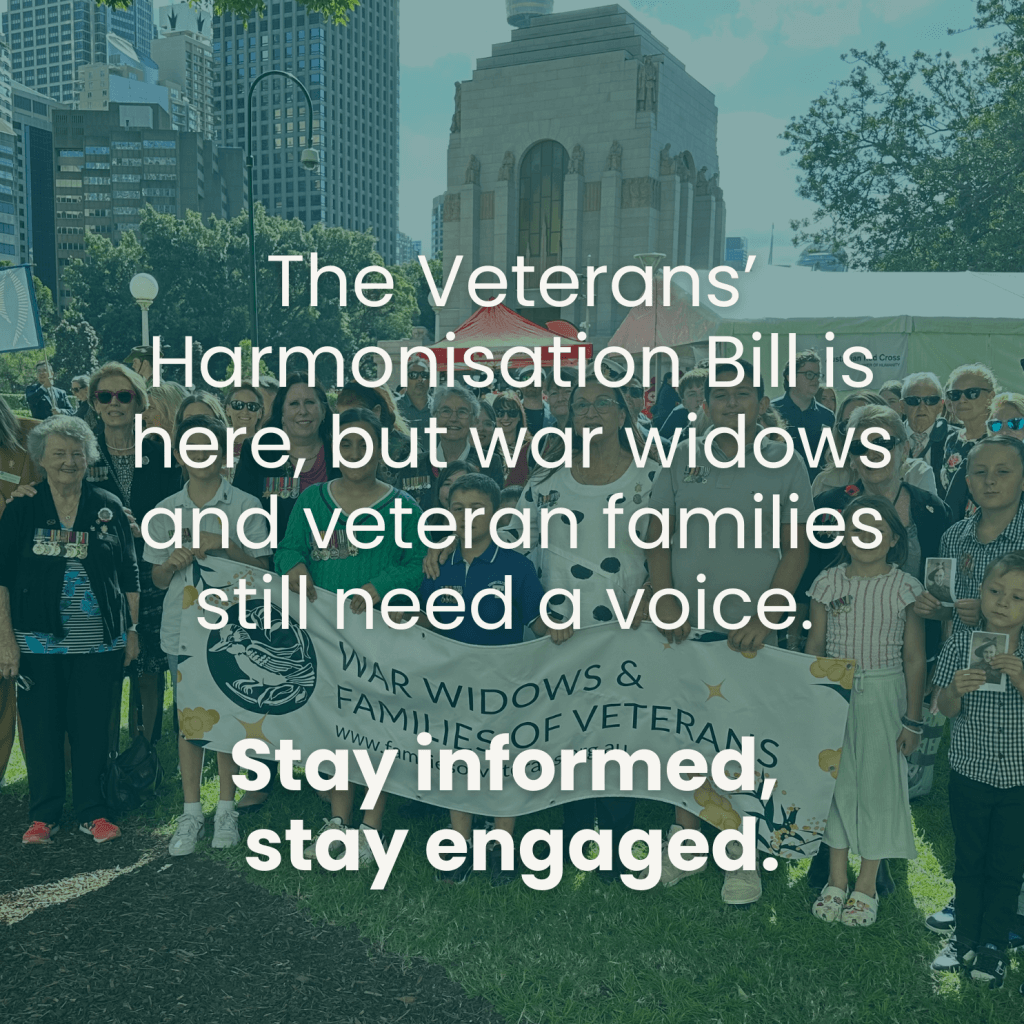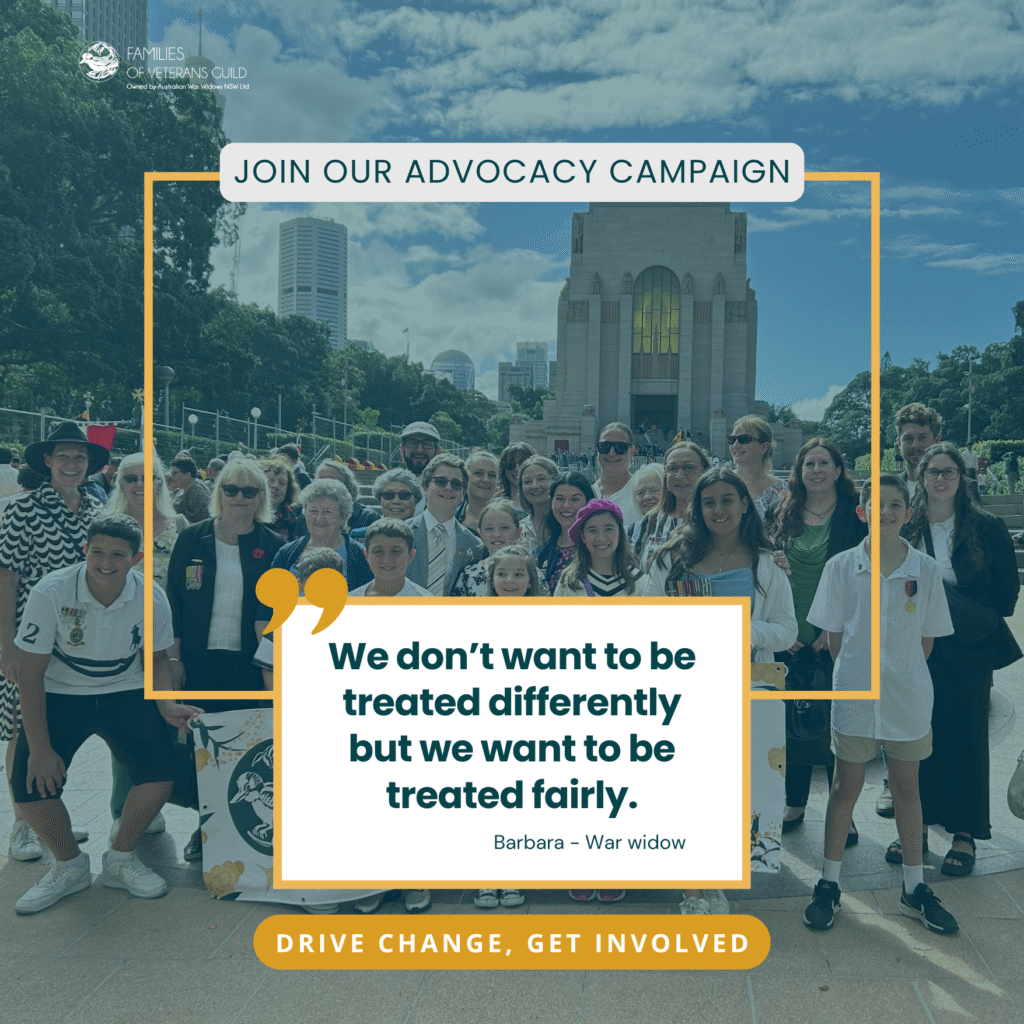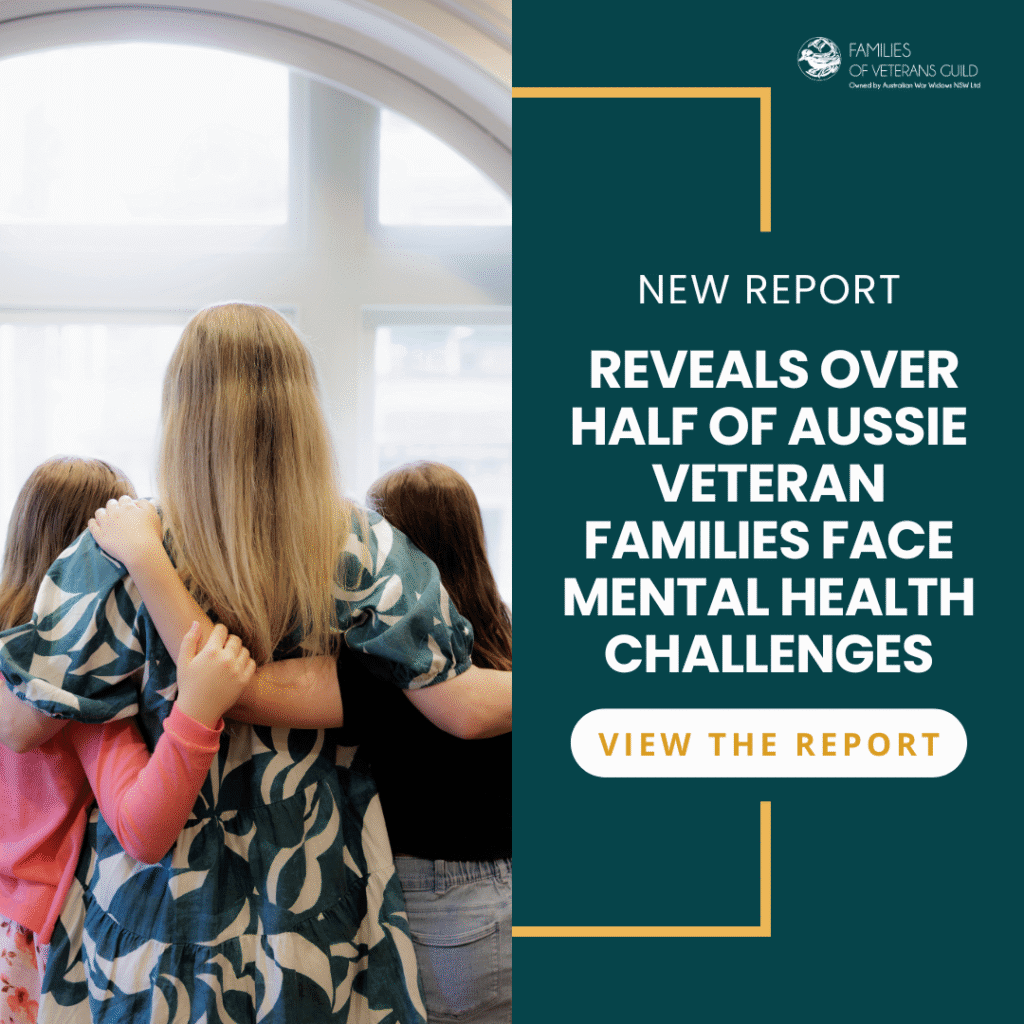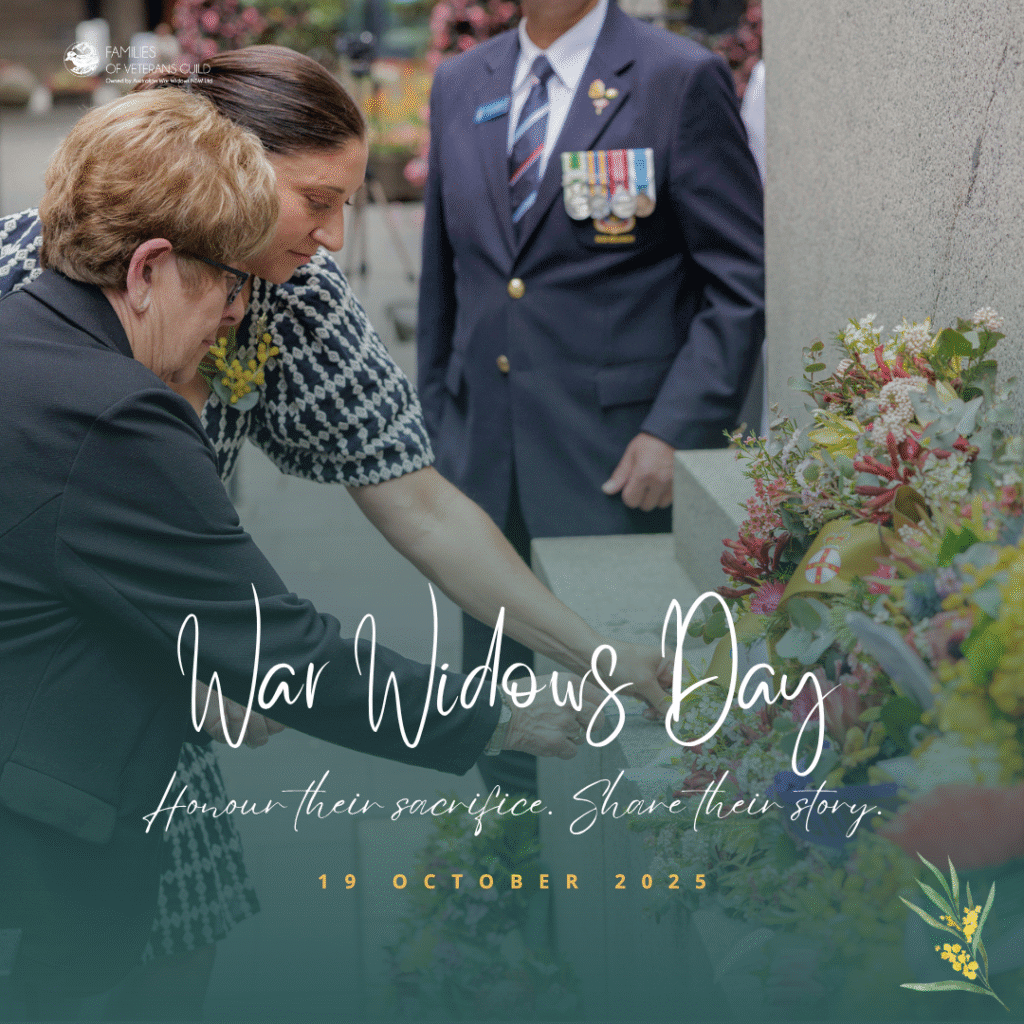The passage of the Veterans Harmonisation Bill marks a significant shift in the veteran support system. While it streamlines veteran entitlements under the Military Rehabilitation and Compensation Act (MRCA) from July 2026, there remain critical areas requiring further improvement—particularly in recognising and supporting families of veterans and removing disadvantages within the Act for war widows and bereaved spouses. Here’s what you need to know.
War widows will see no changes, only improvements
The good news is that war widows and widows of veterans will not face any reductions in their entitlements under the new scheme. In fact, the provisions surrounding service-related deaths under MRCA are more generous than those in previous legislation. This means that the financial and support structures in place will offer better security than historical schemes did.
However, while the new framework maintains and enhances benefits, it still falls short in fully recognising the sacrifices and challenges faced by the families of veterans. Some of the critical disadvantages within MRCA remain unaddressed—an issue we pushed to rectify during the consultation process. Unfortunately, the Government was not prepared to engage in discussions on these matters at this stage, prioritising the unification of veteran schemes before making additional improvements.
Now, what needs to happen
With the passage of the Veterans Harmonisation Bill, our focus must shift toward ensuring the upcoming 12-month review process addresses the existing gaps in MRCA. This review will provide a vital opportunity to push for legislative reforms that better serve veteran families.
Key areas requiring immediate attention include:
- Updating legislative language: Outdated terms like “wholly dependent partner,” “dependents,” and “attendants” diminish the role of veteran families and reinforce outdated power dynamics. We must advocate for terminology that respects and reflects modern relationships and family structures.
- Revisiting statutory time limits on acute support: Time limits on entitlements continue to disadvantage war widows and veteran families. These need to be reassessed to ensure that no one is left behind due to bureaucratic constraints.
- Ensuring full integration of families into veteran support systems: Veteran families must be included in the framework governing support and entitlements, recognising their critical role in the rehabilitation and well-being of veterans.
It is vital for our community to remain engaged and consulted
The veteran sector must remain an active participant in shaping its future. Veterans and their families deserve a system that works for them, not one that is imposed upon them without proper consultation.
The recent passing of the VETS Bill underscored the importance of community engagement. A late amendment introduced by the Government aimed to establish the Defence and Veteran Services Commission without consultation. This 31-page amendment proposed significant structural changes to the veteran sector, yet the veteran community was blindsided by its sudden inclusion.
Upon reviewing the amendment, we identified several key concerns and raised them with all sides of Parliament. The Government ultimately conceded, agreeing that a formal consultation on the content and design of the Commission will take place before its official launch in September 2025. This was a significant win for the community, demonstrating that our collective advocacy efforts can influence policy decisions.
The addition to the amendment: what happened and why it matters
The Government’s unexpected amendment to establish the Defence and Veteran Services Commission highlighted a major issue: the lack of transparency and consultation in decision-making processes that directly impact the veteran community. While the proposed Commission holds significant powers that could reshape veteran services, the absence of prior engagement with the community was unacceptable.
Our swift response ensured that this issue was taken seriously, resulting in a commitment from the Government to consult the veteran sector before the Commission becomes operational. This outcome reinforces the importance of remaining vigilant and proactive in advocating for our community.
Moving forward: advocacy must continue
While the passing of the Veterans Harmonisation Bill brings positive changes, it is not the final step. We must remain engaged in shaping the future of MRCA, pushing for improvements that reflect the realities faced by veteran families.
Our next steps include:
- Ensuring full consultation in the design of the Defence and Veteran Services Commission
- Advocating for legislative updates that modernise language and remove systemic disadvantages
- Holding the Government accountable for its promise to review and improve the MRCA framework
The fight for a fair, inclusive and effective veteran support system continues. With collective effort and unwavering advocacy, we can ensure that war widows and veteran families receive the recognition and support they deserve.




